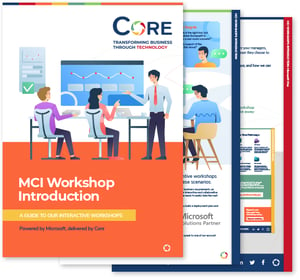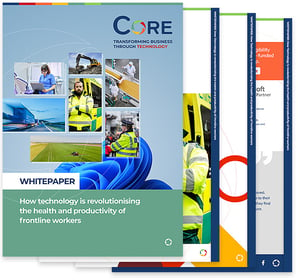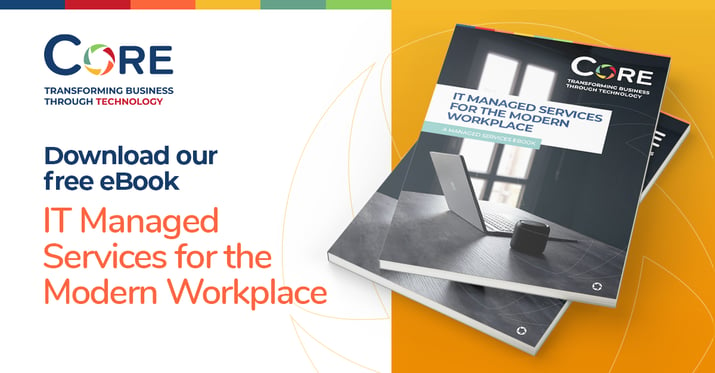Recently, Core completed its submission to Crown Commercial Service to renew our services for G-Cloud 13.
G-Cloud 13 is a genuine win-win scenario, yet we still see a significant volume of Public Sector customers who do not leverage Framework Agreements for portions of their purchasing – a missed opportunity in our view! In this blog, we outline why you should consider it if you’re a public sector organisation not yet taking advantage of Framework Agreements.
The principle behind Framework Agreements is to reduce the work and risk involved by any Public Sector organisation when they want to buy products or services from the Private Sector. A Framework Agreement provides the baseline work that any customer would have to do, (or should do), upfront, ensuring that suppliers are stable and able to deliver as part of the initial approvals process. This means that Public Sector customers are left with a shortlist of pre-approved suppliers for (almost) every requirement.
Customers can then shorten their procurement process by looking through a list of pre-vetted suppliers, from where they can either directly award services or complete a further competition (mini tender) to finally select their chosen supplier, (depending on the specific rules of the Framework Agreement). All the customer needs to focus on is their specific needs, publish their requirements and review the supplier responses to those. This shortens the timescales for a procurement significantly, with many further competitions being completed by suppliers in 7-14 days.
In comparison to the alternative, an OJEU (Official Journal of the European Union) style tender process, this is a massive reduction in time and cost for the customer.
- The Framework Agreement approval process essentially replaces the Pre-Qualification Questionnaire (PQQ) stage of the procurement, removing the administration process for a customer to review a vast quantity of responses from a wide range of potential suppliers and complete financial vetting processes to shortlist a range of “capable suppliers”, which typically takes around 20-30 days for most direct tenders.
- The customer does not need to draft, circulate, or enter into, lengthy negotiations with suppliers about the contract for the requirement in question. This is all covered by the Framework Agreements “Call off contract”, which vetted suppliers have pre-agreed.
- The customer's Procurement team can simply focus on getting the requirements from their internal stakeholders, and then ask suppliers to respond to those requirements. The customer then reviews these response elements and make an award decision.
- There is no obligation to award on any Framework Agreement, so if the customer does not get a suitable response, they can always re-run the requirement on another Framework Agreement, or decide to revert to an open tender, without having to settle for a response that doesn’t meet their requirements.
For that last point, it’s worth pointing out that the vast majority of capable suppliers will have a presence on one or more Framework Agreements, so the chances of having a failed competition on a Framework is low.
These Agreements are great for the customer, but there are some benefits to the supplier as well, which means pricing can be improved for the customer. This is because:
- Suppliers do not have to complete a PQQ document, submit financial information or review a contract for every opportunity, which saves them time and money.
- The shorter nature of the Further Competition process means that suppliers can potentially start delivering goods or services much faster, which means “time to value” is shorter.
- Even though suppliers might pay a fee to the Public Buying Organisation that is running the Framework Agreement, normally the cost of this is much lower than the cost of reviewing a contract.
This, coupled with the economies of scale of having easier access to Public Sector opportunities, means suppliers can be very competitive in terms of cost for customers buying this way.
If you want to learn more about Framework Agreements, there are lots of resources online. Organisations like Crown Commercial Service have Sector Managers that can talk to you in detail about how you can use Framework Agreements to your advantage.
If you want to learn more about how to work with Core on Framework Agreements, and how we have helped our Public Sector customers, email hello@core.co.uk or call +44 20 7626 0516.








